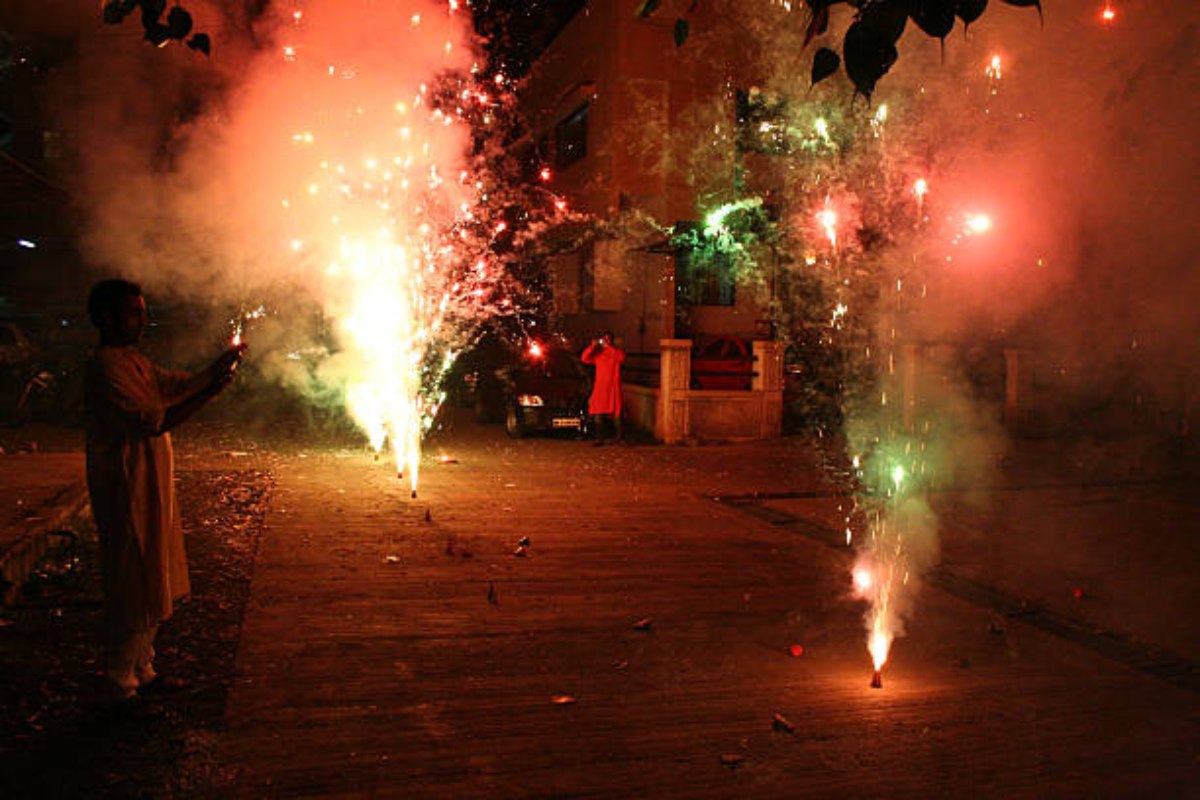Traffic police organizes Yoga session to promote healthy lifestyle
In an initiative to promote healthy lifestyle, Delhi Traffic Police organized a Yoga session for its personnel at the traffic police headquarters.
Delhi’s annual Diwali celebrations, marked by fireworks and firecrackers, cast a long shadow over its air quality.

[Representational Photo : iStock]
Delhi’s annual Diwali celebrations, marked by fireworks and firecrackers, cast a long shadow over its air quality. This year, despite a reduction in stubble burning, the capital still faces hazardous pollution levels. With winter’s approach, conditions are expected to deteriorate further, pushing air quality from already poor levels into severe territory. This persistent air quality crisis demands more than temporary measures; it requires a decisive, sustainable approach.
The challenge, however, is deep-rooted. Crop stubble burning in nearby states has long contributed significantly to pollution in the region, though efforts in Punjab and Haryana to reduce these practices have seen some success. This year’s data reflects a decrease in stubble burning’s role, yet the pollution persists, highlighting how much of the problem stems from within the city ~ vehicle emissions, industrial activity, and, notably, Diwali firecrackers. Despite existing bans, the cultural tradition of setting off fireworks continues largely unimpeded, escalating Delhi’s pollution to critical levels. Add to this, a pathetic traffic management system that results in frequent traffic snarls, and the misery is complete. Each year, the government implements emergency measures ~ temporary construction bans, traffic restrictions, and calls to limit firecracker use. But these are short-term solutions to a longterm problem.
What Delhi truly needs is a transformation in how its citizens and leaders approach air quality. The Supreme Court recently reiterated that breathing clean air is a fundamental right, urging all involved to adopt more effective strategies. Yet, true change requires not only policy shifts but also public support for these measures. There are alternative ways to celebrate Diwali that could reduce its environmental impact. A growing number of citizens advocate for ecofriendly celebrations, including laser shows or biodegradable firecrackers. Public awareness campaigns around the health impact of poor air quality could further encourage shifts in behaviour.
Advertisement
Firecrackers may be a longstanding tradition, but Delhi’s air quality crisis demands that people rethink this custom for the sake of public health. Ultimately, Delhi’s air quality crisis is a collective challenge that requires both policy reform and individual responsibility. Local and authorities must prioritise sustainable solutions, such as improving public transportation, enforcing emission standards for vehicles, managing smooth traffic flows, and supporting farmers with alternatives to stubble burning. At the same time, the city’s residents have a role to play in supporting these initiatives and choosing eco-friendly ways to celebrate.
Delhi’s pollution problem is a severe, urgent issue that threatens the health of millions. While implementing temporary restrictions may help a little, they are not enough on their own. Only a concerted, sustainable effort by both citizens and the government can clear the air for good. As Diwali approaches, the choice to celebrate in a way that respects both tradition and public health lies in the hands of each citizen. It’s a decision that will not only impact the present but will also shape the future for generations to come.
Advertisement